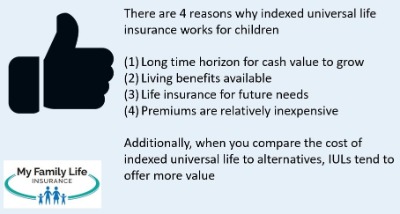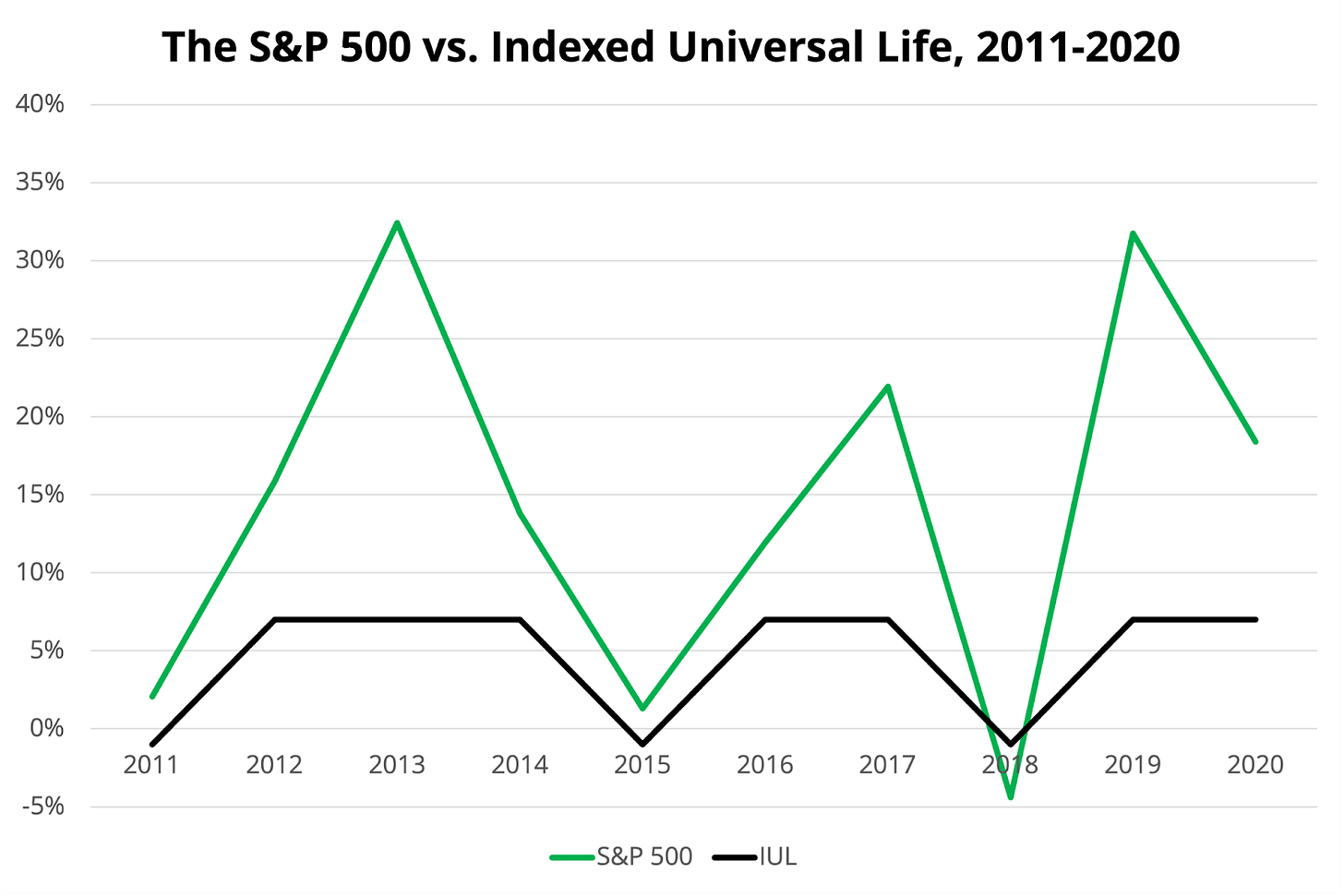All Categories
Featured
Table of Contents
1), often in an attempt to beat their group averages. This is a straw male debate, and one IUL people like to make. Do they contrast the IUL to something like the Vanguard Total Amount Stock Exchange Fund Admiral Show no tons, an expenditure proportion (ER) of 5 basis factors, a turn over ratio of 4.3%, and an exceptional tax-efficient document of distributions? No, they contrast it to some dreadful actively taken care of fund with an 8% load, a 2% EMERGENCY ROOM, an 80% turnover proportion, and a horrible record of short-term capital gain distributions.
Mutual funds usually make yearly taxable distributions to fund owners, also when the value of their fund has decreased in value. Common funds not just need earnings reporting (and the resulting yearly tax) when the shared fund is increasing in value, yet can also impose income taxes in a year when the fund has actually decreased in value.
That's not exactly how mutual funds function. You can tax-manage the fund, harvesting losses and gains in order to minimize taxed distributions to the financiers, yet that isn't somehow going to alter the reported return of the fund. Only Bernie Madoff types can do that. IULs stay clear of myriad tax obligation catches. The ownership of mutual funds may need the mutual fund proprietor to pay approximated tax obligations.
IULs are very easy to position to make sure that, at the owner's death, the beneficiary is not subject to either earnings or estate tax obligations. The very same tax decrease strategies do not work virtually as well with shared funds. There are various, often pricey, tax traps linked with the timed trading of mutual fund shares, catches that do not relate to indexed life Insurance.
Chances aren't extremely high that you're going to be subject to the AMT because of your mutual fund distributions if you aren't without them. The rest of this one is half-truths at ideal. While it is real that there is no income tax due to your beneficiaries when they inherit the earnings of your IUL policy, it is also true that there is no revenue tax due to your heirs when they inherit a common fund in a taxable account from you.
Universal Life Insurance Broker
There are better means to stay clear of estate tax obligation issues than buying investments with reduced returns. Shared funds may trigger earnings taxes of Social Safety advantages.

The growth within the IUL is tax-deferred and might be taken as free of tax revenue using fundings. The plan owner (vs. the mutual fund supervisor) is in control of his/her reportable earnings, thus enabling them to minimize or perhaps remove the taxation of their Social Security advantages. This set is excellent.
Here's one more very little issue. It's real if you acquire a common fund for state $10 per share just prior to the distribution day, and it distributes a $0.50 distribution, you are then going to owe taxes (probably 7-10 cents per share) in spite of the truth that you haven't yet had any gains.
In the end, it's truly about the after-tax return, not how much you pay in tax obligations. You are going to pay even more in taxes by utilizing a taxed account than if you acquire life insurance policy. You're additionally probably going to have even more money after paying those taxes. The record-keeping demands for having common funds are significantly extra complicated.
With an IUL, one's records are kept by the insurance provider, copies of yearly statements are mailed to the proprietor, and distributions (if any) are completed and reported at year end. This set is likewise sort of silly. Certainly you must maintain your tax documents in situation of an audit.
Life Insurance Tax Free Growth
All you need to do is push the paper into your tax folder when it reveals up in the mail. Barely a factor to get life insurance policy. It resembles this man has never purchased a taxed account or something. Common funds are generally part of a decedent's probated estate.
On top of that, they go through the delays and expenses of probate. The profits of the IUL plan, on the various other hand, is always a non-probate circulation that passes outside of probate directly to one's named recipients, and is therefore exempt to one's posthumous lenders, undesirable public disclosure, or comparable hold-ups and prices.
We covered this under # 7, however just to summarize, if you have a taxed mutual fund account, you need to put it in a revocable count on (or perhaps simpler, utilize the Transfer on Death classification) in order to avoid probate. Medicaid disqualification and life time income. An IUL can offer their proprietors with a stream of earnings for their entire lifetime, no matter for how long they live.

This is beneficial when organizing one's affairs, and converting assets to revenue prior to a retirement home arrest. Mutual funds can not be converted in a comparable fashion, and are generally thought about countable Medicaid properties. This is an additional silly one advocating that poor people (you understand, the ones that require Medicaid, a federal government program for the poor, to spend for their assisted living facility) need to utilize IUL as opposed to mutual funds.
Guarantee Universal Life
And life insurance coverage looks horrible when compared fairly against a pension. Second, individuals who have money to purchase IUL above and beyond their retired life accounts are going to need to be terrible at handling cash in order to ever receive Medicaid to pay for their nursing home costs.
Persistent and terminal health problem biker. All policies will enable an owner's simple access to money from their policy, frequently forgoing any abandonment penalties when such people endure a significant ailment, require at-home care, or come to be confined to an assisted living home. Shared funds do not offer a comparable waiver when contingent deferred sales costs still apply to a common fund account whose proprietor needs to sell some shares to fund the expenses of such a keep.
Universal Vs Term Insurance
You get to pay more for that advantage (rider) with an insurance coverage policy. Indexed global life insurance policy offers death benefits to the recipients of the IUL owners, and neither the owner neither the beneficiary can ever lose cash due to a down market.
I definitely don't need one after I reach economic freedom. Do I want one? On average, a buyer of life insurance coverage pays for the real price of the life insurance coverage benefit, plus the expenses of the policy, plus the profits of the insurance coverage company.
Iul Online
I'm not entirely sure why Mr. Morais tossed in the entire "you can not shed cash" again here as it was covered rather well in # 1. He just desired to repeat the very best marketing point for these things I suppose. Again, you do not shed small dollars, yet you can lose actual dollars, as well as face significant possibility cost due to low returns.

An indexed universal life insurance policy proprietor might trade their plan for an entirely various plan without setting off revenue taxes. A shared fund proprietor can not move funds from one mutual fund company to one more without selling his shares at the previous (thus activating a taxed occasion), and repurchasing brand-new shares at the latter, frequently based on sales costs at both.
While it is real that you can exchange one insurance plan for an additional, the reason that individuals do this is that the very first one is such an awful plan that also after acquiring a new one and going with the early, adverse return years, you'll still appear ahead. If they were marketed the appropriate policy the very first time, they should not have any kind of wish to ever before trade it and undergo the very early, negative return years again.
Latest Posts
Equity Index Life
Universal Insurance Near Me
Compare Universal Life Insurance Rates